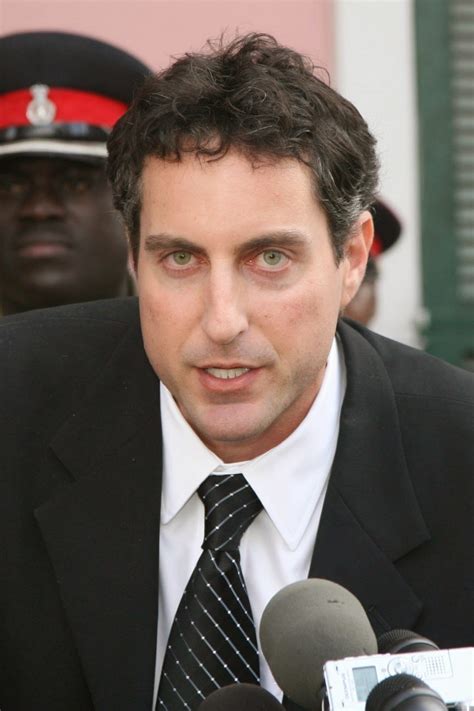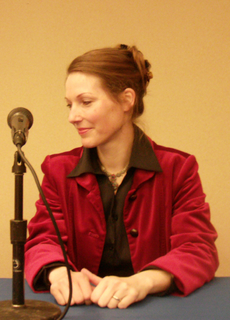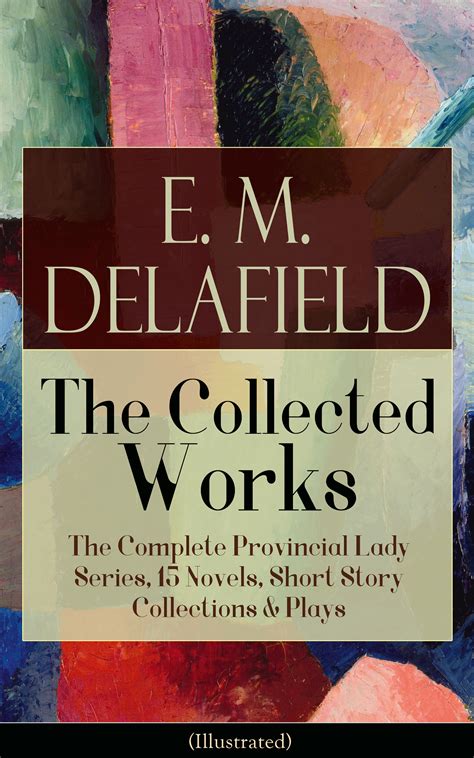A Quote by J. R. R. Tolkien
Yet at the last Beren was slain by the Wolf that came from the gates of Angband, and he died in the arms of Tinúviel. But she chose mortality, and to die from the world, so that she might follow him; and it is sung that they met again beyond the Sundering Seas, and after a brief time walking alive once more in the green woods, together they passed, long ago, beyond the confines of this world. So it is that Lúthien Tinúviel alone of the Elf-kindred has died indeed and left the world, and they have lost her whom they most loved.
Related Quotes
They loved, and quarreled, and made up, and loved, and fought, and were true to each other and untrue. She made him the happiest man in the whole world and the most wretched, and after a few years she died, and then, when he was thirty, he died, too. But by that time Catullus had invented the love poem.
Daniel[her son] was without question the most important person in Anna Nicole Smith's life. From the time I met her, everything that she was doing was for Daniel. From the day Daniel died, Anna honestly was never the same. I would say that physically she died last week but in a lot of ways emotionally she died when Daniel died.
She lifted up her hand and from the ring that she wore there issued a great light that illuminated her alone and left all else dark. She stood before Frodo seeming now tall beyond measurement, and beautiful beyond enduring, terrible and worshipful. Then she let her hand fall, and the light faded, and suddenly she laughed again, and lo! she was shrunken: a slender elf-woman, clad in simple white whose gentle voice was soft and sad.
She had died peacefully, in her sleep, after an evening of listening to all of her favorite Fred Astaire songs, one crackling record after another. Once the last chord of the last piece had died out, she had stood up and opened the French doors to the garden outside, perhaps waiting to breathe in the honeysuckle one more time.
I once picked up a woman from a garbage dump and she was burning with fever; she was in her last days and her only lament was: My son did this to me. I begged her: You must forgive your son. In a moment of madness, when he was not himself, he did a thing he regrets. Be a mother to him, forgive him. It took me a long time to make her say: I forgive my son. Just before she died in my arms, she was able to say that with a real forgiveness. She was not concerned that she was dying. The breaking of the heart was that her son did not want her. This is something you and I can understand.
Blaire, This was my grandmother’s. My father’s mother. She came to visit me before she passed away. I have fond memories of her visits and when she passed on she left this ring to me. In her will I was told to give it to the woman who completes me. She said it was given to her by my grandfather who passed away when my dad was just a baby but that she’d never loved another the way she’d loved him. He was her heart. You are mine. This is your something old. I love you, Rush
Farewell sweet earth and northern sky, for ever blest, since here did lie and here with lissom limbs did run beneath the Moon, beneath the Sun, Lúthien Tinúviel more fair than Mortal tongue can tell. Though all to ruin fell the world and were dissolved and backward hurled; unmade into the old abyss, yet were its making good, for this - the dusk, the dawn, the earth, the sea - that Lúthien for a time should be.
She died that night. Her last breath took her soul, I saw it in my dream. I saw her soul leave her body as she exhaled, and then she had no more needs, no more reason; she was released from her body, and being released, she continued her journey elsewhere, high in the firmament where soul material gathers and plays out all the dreams and joys of which we temporal beings can barely conceive, all the things that are beyond our comprehension, but even so, are not beyond our attainment if we choose to attain them, and believe that we truly can.
It was a bold, wild life for a faerie - most never even left their forests - but she was a bold, wild lass, and so were her daughter and granddaughter after her, and their place in the world was everywhere and nowhere, like gypsies on wing. No home had they but their caravans and campfires, and no family but the one they'd cobbled together of crows, creatures and kindred souls they'd met on their endless journey round and round the world.
Elena had always felt like the center of her own world - who doesn't? The world arranged itself around her like petals around the stem of a flower. This way the meadows, that way the woodland. Over here, the baryn's estate, out there, the hills that hug the known world close and imply a world at beyond. She could never come up with the edge of a world, because it always kept going on beyond. She moved the center of the world as she walked. The world was balanced on her head.
June Jordan, who died of cancer in 2002, was a brilliant, fierce, radical, and frequently furious poet. We were friends for thirty years. Not once in that time did she step back from what was transpiring politically and morally in the world. She spoke up, and led her students, whom she adored, to do the same.
She looked up at him with a smile. The smile broke what was left of his resistance - shattered it. He had let the walls down when he'd thought she was gone, and there was no time to build them back up. Helplessly he pulled her against him. For a moment she clung to him tightly, warm and alive in his arms. Her hair brushed his cheek. The color had come back into the world; he could breathe again, and for that moment he breathed her in - she smelled of salt, blood, tears, and Tessa.



































